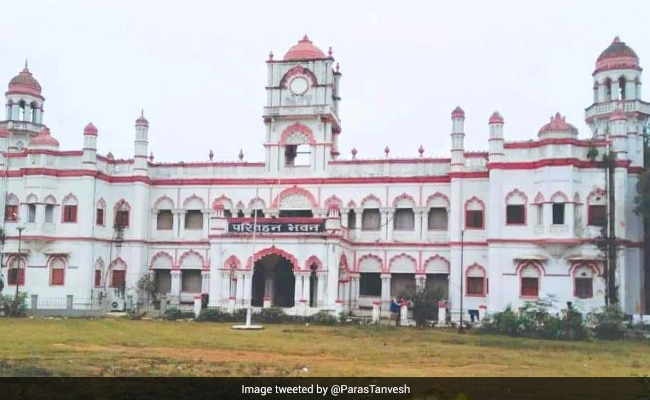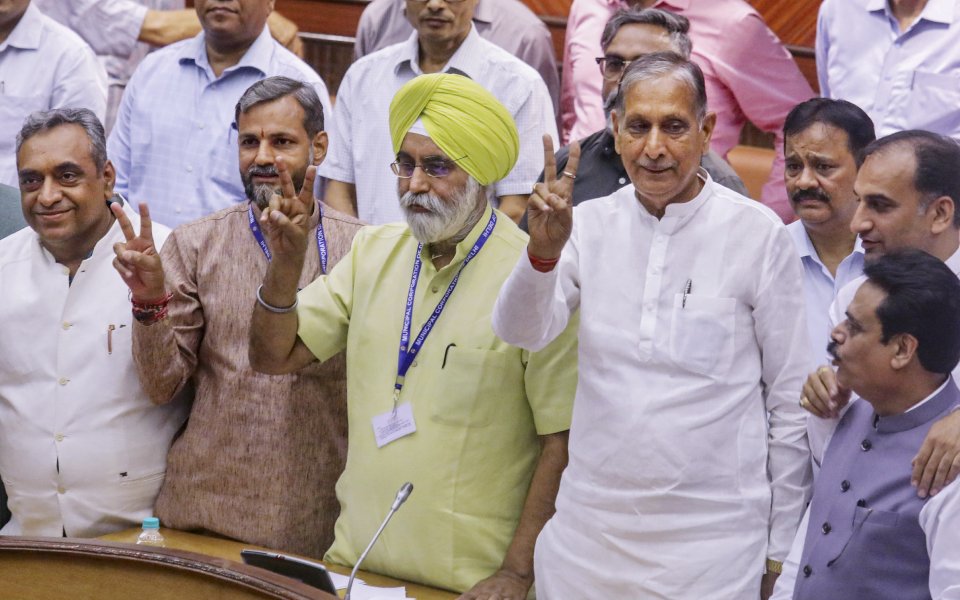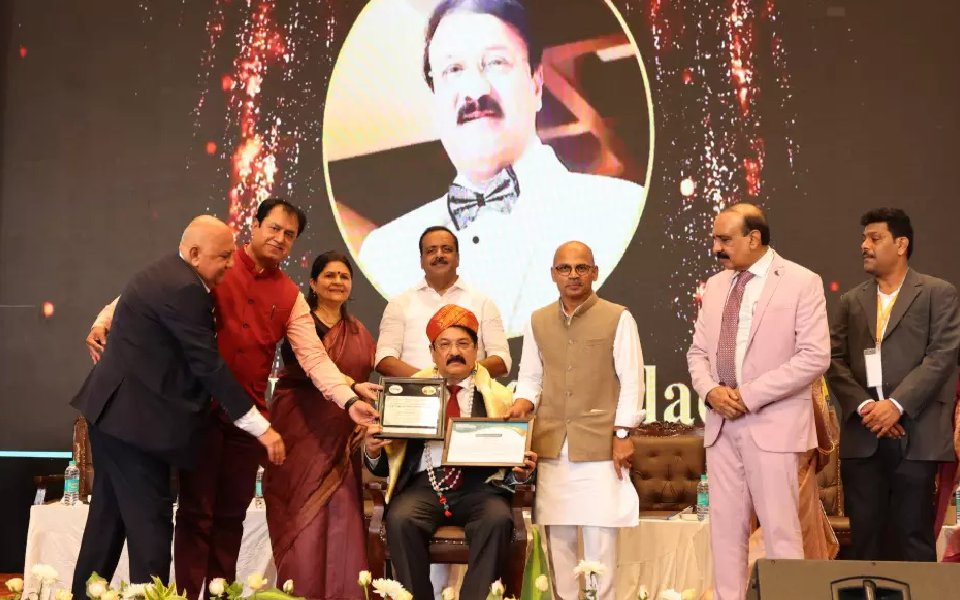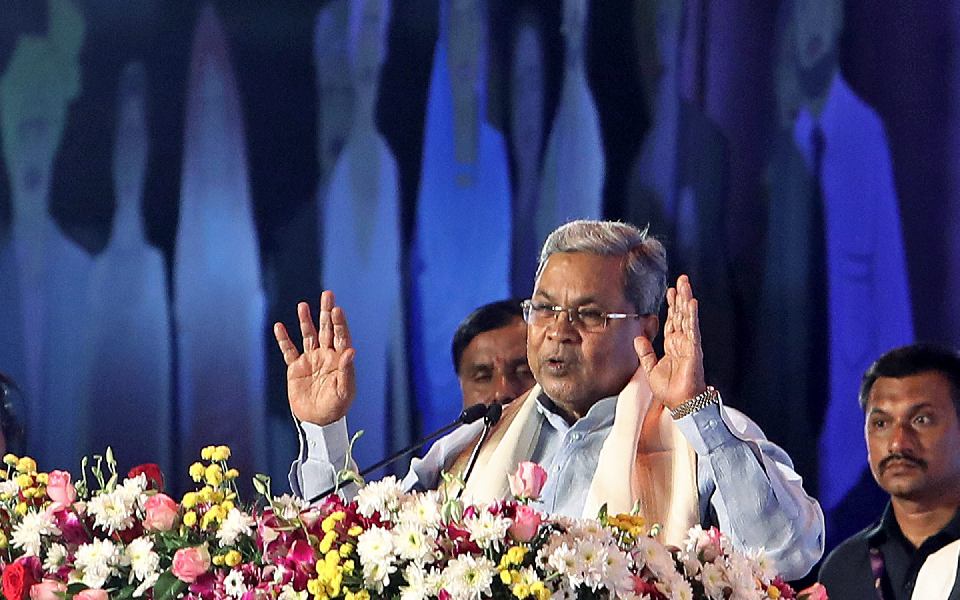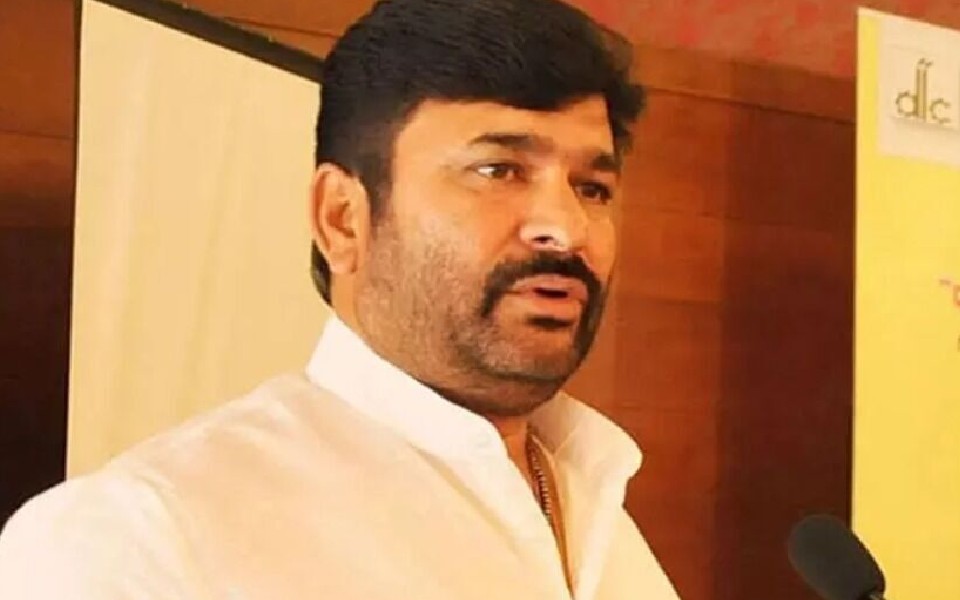Patna, Sep 24: The Patna High Court has sought a reply from the Bihar government on its decision to dismantle the historic Sultan Palace to build a five-star hotel, even as it stayed the proposed demolition of the iconic 100-year-old landmark in the heart of the city.
The stay on the demolition of the Palace, built in 1922 by barrister Sir Sultan Ahmed, was granted by the court during an online hearing on Friday on a PIL filed recently, according to lawyers of the petitioner.
The move has brought much-needed relief to heritage lovers and a large cross-section of the citizenry which had been demanding the authorities to roll back the decision, and instead restore and reuse the palace.
The public interest litigation (PIL) was filed by a young Patna-based lawyer and this was the first hearing in the case, said a member of a team of lawyers who appeared on behalf of him during the hearing.
The PIL, titled Amarjeet vs Union of India, against the decision of Bihar government to demolish the heritage building 'Sultan Palace' in Patna, which is commonly known as Parivahan Bhawan, was filed before the Patna High Court a few weeks ago.
A division bench of the Chief Justice of the High Court Justice Sanjay Karol and Justice S Kumar stayed the proposed demolition of the Sultan Palace," the member said.
The court has sought a reply from the Bihar government as to why it has planned to demolish a 100-year-old heritage building, asking it to furnish the response in eight weeks.
Petitioner and lawyer Amarjeet, 28, said one of the judges in the bench also cited the example of Rajasthan, where old heritage buildings have been restored, repurposed, and reused as hotels or for other purposes, and celebrated.
The Nitish Kumar government had mid-June announced that the state cabinet has given its nod to build three five-star hotels in Patna, including one on Beer Chand Patel Road where the palace is built.
The government had then said that the imposing structure would be dismantled to make way for a hotel built like a modern high-rise.
Soon after the decision was made public, heritage-lovers swarmed to social media decrying the move, with many declaring it "absolutely shocking" and some even a "hare-brained decision."
Some of them even cited the state government's older decision, taken a few years ago, to convert the palace into a "heritage hotel" and asked why it discarded the widely-reported old plan.
Historians, conservationists, and ordinary citizens of the country have since vehemently opposed the decision and appealed to authorities to preserve and restore the "architectural icon" and not raze a veritable "pride of Patna and the country."
Ironically, the Sultan Palace finds a mention in the 2008 Bihar government publication "Patna: A Monumental History".
"Sultan Palace is a beautiful example of Islamic architecture, its palatial look comes from its high-domed tower in the centre and the domed pavilions at the two ends of the roof.
This is further stressed by slender minarets rising at angles and the series of multi-foliated arches in the facade," reads the chapter in it on the palatial building, which sits in a sprawling campus that spans more than four acres.
The palace, located on the historic Gardiner Road (now Beer Chand Patel Road) near R-Block area, was built in 1922 by the renowned barrister of Patna, Sir Sultan Ahmed, who also briefly served as a judge in the Patna High Court and as the first Indian vice-chancellor of the Patna University from 1923-30.
He later also became a member of the Viceroy's Executive Council for law, and information and broadcasting, and was part of the delegation of India for the historic Round Table Conferences in 1930s in London, along with Mahatma Gandhi.
Citizens in early August had taken their protest online, treanding #SaveSultanPalace to highlight the vulnerability of the historic landmark.
Let the Truth be known. If you read VB and like VB, please be a VB Supporter and Help us deliver the Truth to one and all.
New Delhi, Apr 25 (PTI): BJP’s Raja Iqbal Singh was elected as Delhi’s new mayor on Friday, marking the saffron party’s return to power in the Municipal Corporation of Delhi (MCD) after two years.
Singh defeated Congress candidate Mandeep Singh by a margin of 125 votes to secure the top civic post, while the Aam Aadmi Party (AAP) boycotted the mayoral election.
As the mayoral result was announced, the second round of polling for the deputy mayor’s post was expected to take place.
However, Congress candidate Ariba Khan (from Abul Fazal Enclave, Ward 188) withdrew her nomination, clearing the way for BJP’s Jai Bhagwan Yadav to be elected unopposed as Deputy Mayor.
As Singh took his seat, BJP councillors filled the air with chants of “Bharat Mata ki Jai.”
Out of the total 142 votes cast for the mayor’s post, one vote was declared invalid. Iqbal secured 133 votes, while Congress candidate Mandeep Singh received eight.
The BJP lost two votes due to the absence of MP Manoj Tiwari. The Aam Aadmi Party (AAP) had announced a boycott of the election on Monday.
The election was conducted during the general meeting of the MCD.
After being elected, Singh announced that the Standing Committee would be formed within a month and said, “Everyone will work together with commitment.”
“We will try to form the Standing Committee within a month and work in coordination with the Delhi government to ensure people face no problems. Our priorities include making parks greener, curbing corruption and pollution, and scrapping user charges immediately,” Iqbal Singh said.
He added that the party will “motivate” teachers, provide funds for students’ uniforms, and improve school infrastructure.
“The people of Delhi have shown faith in Prime Minister Modi and the BJP. We are committed to serving the city through the MCD and delivering on our promises. All eligible contractual workers under the BMP will be regularised as per rules,” he said.
He said that in the last two-and-a-half years, the development of the capital had slowed down.
“With the support of both the Delhi government and the central government, we will now accelerate the pace of development and complete pending work,” he said.
He also emphasised that "positive initiatives" will be undertaken to improve cleanliness, ensure quality education, and strengthen primary healthcare. Special focus will be given to resolving issues related to legacy waste at landfill sites and waterlogging.
Iqbal Singh was the Leader of the Opposition in the MCD and earlier served as the Mayor of North MCD.
He hails from a family with strong Akali Dal connections. His father-in-law was a councillor from the GTB Nagar constituency, and his brother-in-law was also active in Akali politics.
Iqbal Singh had also served as an Akali Dal councillor from GTB Nagar and headed the Civil Lines Zone of the corporation until September 2020.
Key political figures, including BJP MPs Harsh Malhotra, Praveen Khandelwal, Bansuri Swaraj, Kawaljeet Sehrawat, and Yogendra Chandolia, cast their votes in the mayoral election.
The Aam Aadmi Party (AAP), which held the mayor’s post for over two-and-a-half years, completely boycotted the polls.
The last mayoral election, held on November 14, 2024, saw AAP’s Mahesh Kumar Khinchi win by a razor-thin margin of just three votes.
Satya Sharma, a BJP councillor from Gautampuri, served as the presiding officer for the mayoral election for the fourth time. Sharma is a three-time councillor.
At the beginning of the proceedings, Sharma called for a two-minute silence in memory of the 26 people who died in the recent terror attack in Pahalgam.
Despite the BJP’s victory, the party refrained from celebrations and did not garland the newly elected mayor.

